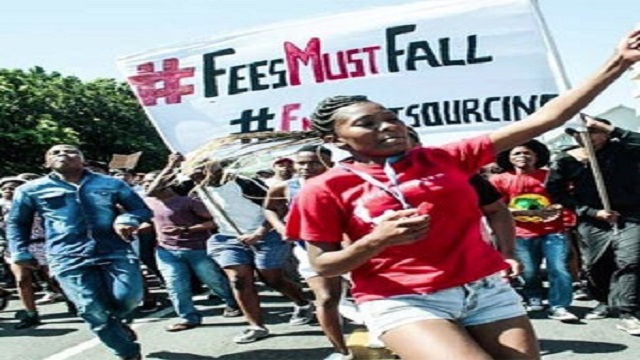
The chair of the Commission of Inquiry into Higher Education and Training, Judge Jonathan Heher, faces a mammoth task as he needs to consolidate information into a report for President Jacob Zuma within the next two months.
The commission’s work, which includes determining the feasibility of fee-free tertiary education, draws to an end next month.
Commission spokesperson Musa Ndwandwe said much time would be spent on compiling the report, which must be handed to Zuma by June at the latest.
“We currently do not have a date for the end of the public hearings. However, it is safe to speculate that, by the first week of April, we will be done. This gives commissioners enough time to go through all the evidence as they prepare the final report,” he said.
The last key submissions made this week were that of ANC Youth League (ANCYL) secretary-general Njabulo Nzuza, and Science and Technology Minister Naledi Pandor, who presented on behalf of the ANC’s subcommittees on health, education, science and technology.
Nzuza was grilled on the ANCYL’s submission for the nationalisation of universities, while Pandor was questioned about the state’s limitations to deliver on the ANC’s promises for free education.
Heher asked Pandor if government would consider a “seductive” proposal to consider using loans from banks to fund poor students, for which the state would stand as guarantor.
Pandor was cautious in her reply, saying research would first have to be conducted into the matter.
Here are some of the proposals the commission heard:
ANCYL
Nationalise universities. Supply free education only to the poor – this would be based on income and dependency levels, keeping in mind that some families pay “black tax”. Do away with university autonomy and the National Student Financial Aid Scheme (NSFAS) because the system is being abused.
Use the South African Revenue Service to assess eligibility for funding – applications would work the same way as filing a tax return. Tax corporates and invest in university infrastructure.
ANC
NSFAS is viable. Increase NSFAS support for poor students in the so-called missing middle. Review current state grant funding to universities.
Develop frameworks to regulate university fee increases that will not infringe on university autonomy.
Ring-fence funding for science and engineering students, as well as for artisans, to attract and retain young people.
DA
Fund NSFAS better and expand it to include applicants from households with an annual income of R500 000. Introduce a tiered system of loans or grants for the missing middle who can afford to pay a portion of their fees.
Explore a variety of alternative funding sources, including partnerships with private and banking sectors, to increase access to loans. Reduce the number of prestige items in the national budget and redirect funds towards university education. Develop a more efficient debt collection system within NSFAS.
Equal Education movement
Increase funding by at least an aggregate amount equal to the ratio achieved in Organisation for Economic Cooperation and Development countries. Poor students need to be prioritised.
Examine the personal tax structure and levy the top 10% of income earners. This income, together with that of high-net-worth individuals, who have so far evaded taxation, could increase available public revenue to fund higher education.
Federation of Unions of SA
Free education for all is not viable, but it should be more affordable. Re-prioritise spending and develop a better funding model for higher education, balancing institutional and student needs. Transfer substantive budget items from universities, such as salaries, to the state, but staffing levels and quality should not be jeopardised.
Universities SA
Fee-free higher education is not supported unless it is absolutely clear how a full funding model is constituted. Levels of public investment in higher education must be internationally benchmarked and matched to the value of the public good.
If the state declares fee-free higher education for all without making up for universities’ ensuing losses, most will become bankrupt within months.
